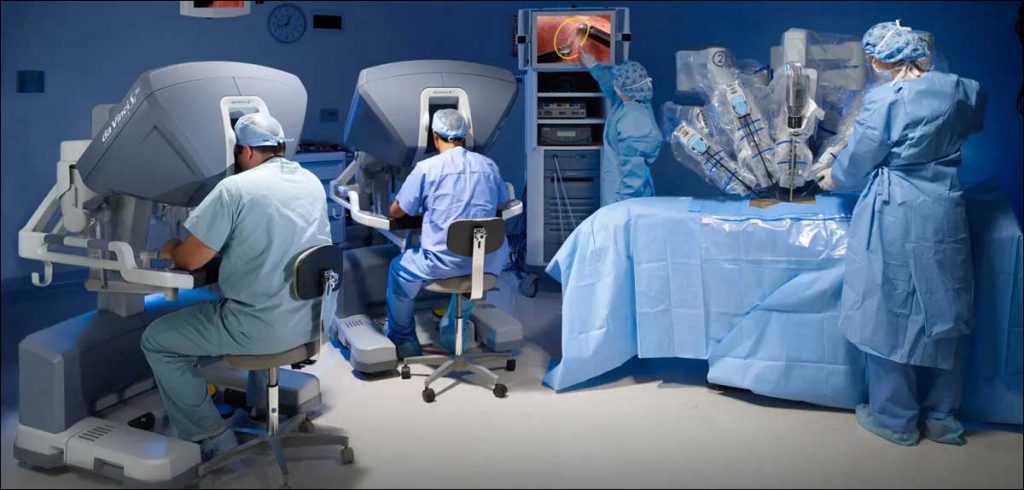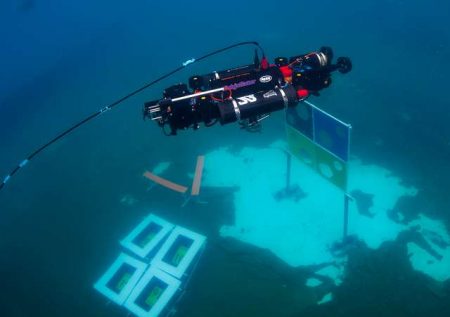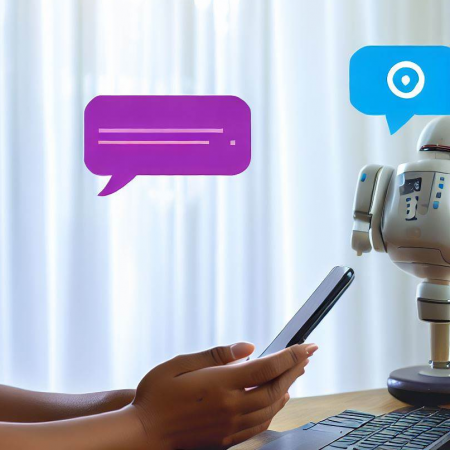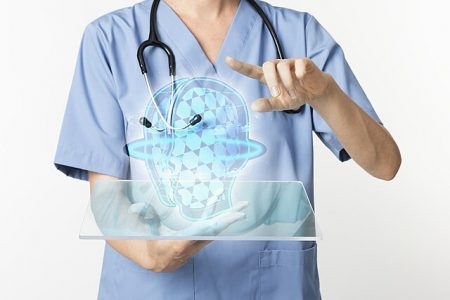Exploring the ethical dimensions and navigating integration challenges is essential to ensure that the potential of emerging technologies is harnessed responsibly.
Imagine a world where accessing top-notch healthcare is just a click away, anytime, anywhere. Envision monitoring your health, receiving personalized care, and obtaining remote diagnoses seamlessly. Picture immersive medical simulations and scenarios at your fingertips. In the healthcare industry, this isn’t science fiction but an emerging reality, courtesy of transformative technologies. Conversational AI, IoT, cloud computing, and robotics are reshaping healthcare delivery, presenting both opportunities and challenges for patients, healthcare organizations, and policymakers.
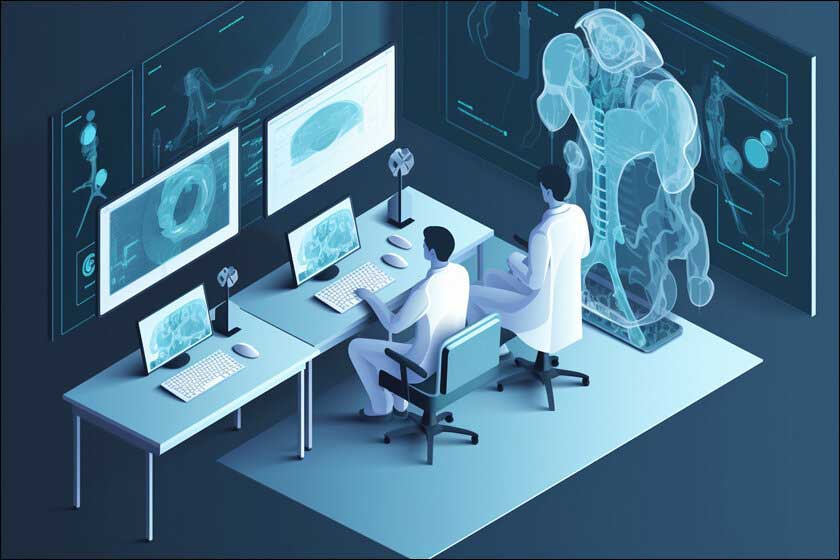
Let’s delve into how technology is revolutionizing healthcare, exploring its benefits and anticipating future trends. The healthcare landscape is undergoing a paradigm shift, propelled by technological breakthroughs that redefine patient care, ushering in an era of unprecedented possibilities and advancements.
The following significant technology developments have revolutionized the healthcare industry:
Electronic Health Records (EHR):
Traditional paper-based health records have been replaced with electronic ones, which provide safe storage and access to patient data for healthcare practitioners. Systems for electronic medical records facilitate patient data management, increase precision, and foster professional teamwork.
Telemedicine and Remote Patient Monitoring:
The conventional method of maintaining health records on paper has given way to electronic counterparts, ensuring secure storage and easy accessibility for healthcare professionals. Electronic medical record systems not only streamline the management of patient data but also elevate accuracy levels and promote collaborative efforts among healthcare practitioners.
Artificial Intelligence and Machine Learning in Diagnostics:
The landscape of diagnostics has undergone a revolution, thanks to the infusion of AI and machine learning algorithms. These advanced technologies analyse vast datasets of medical information, identifying patterns and making precise predictions. Their impact extends to early disease detection, heightened diagnostic accuracy, and the facilitation of personalized treatment plans, marking a significant leap forward in the realm of healthcare.
Robotics and Automation in Surgeries:
The introduction of robotic-assisted technology has completely changed the surgical process environment. Today’s surgeons use robotic devices to do accurate, minimally invasive treatments, which speed up recovery, reduce complications, and ultimately improve patient outcomes. This technical development represents a significant breakthrough in the surgical sector.
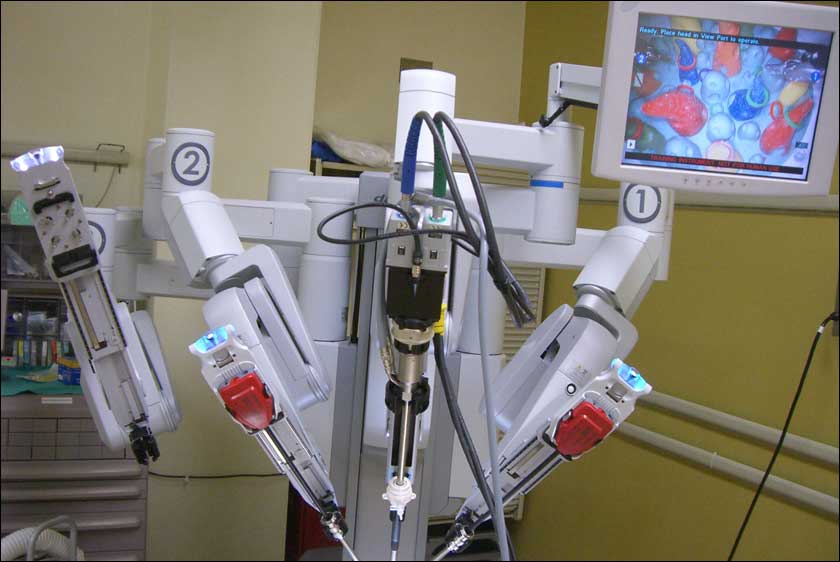
Wearable Devices and Health Monitoring:
The prevalence of wearable devices, encompassing fitness trackers, smartwatches, and medication tracking software, has reached ubiquity. These tools empower individuals to actively monitor their fitness and health levels in real time. Wearable devices go beyond mere tracking, capturing vital signs, physical activity, sleep patterns, and additional health metrics. This real-time data facilitates proactive healthcare management, representing a paradigm shift in how individuals engage with and take charge of their well-being.
The delivery of healthcare has been profoundly influenced by these developments in medical technology, which have also improved patient outcomes, increased productivity, and changed the way healthcare is provided. Future developments in healthcare technology should be expected as it continues to advance and lead to even more ground-breaking discoveries.
A Few Remarkable Effects of New Technologies in Healthcare
Enhancing Patient Care and Treatment:
Emerging technologies have been essential in improving patient care and treatment in the constantly changing field of healthcare.
Improved Accuracy and Efficiency in Diagnosis:
Healthcare workers may now reach improved levels of diagnostic accuracy thanks to artificial intelligence (AI) and machine learning (ML) algorithms. Clinical decision support systems (CDSS) driven by AI have emerged as strong tools for enhancing diagnostic accuracy and efficiency, addressing the ongoing dilemma of medical mistakes.
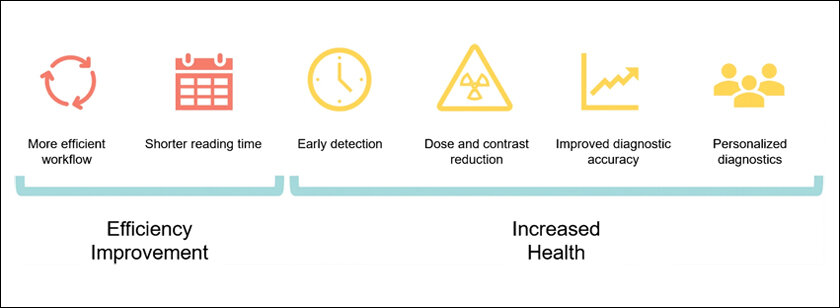
The algorithms can scan massive volumes of patient data, such as medical imaging and electronic health records, to spot trends and make intelligent decisions. This results in more accurate diagnostics, earlier illness identification, and better treatment planning. Furthermore, automating key diagnostic processes minimizes the possibility of human mistake while increasing efficiency, allowing healthcare practitioners to offer timely and efficient care.
Remote Healthcare Access and Telemedicine Benefits:
Through the use of telemedicine and remote consultations, technology has completely changed healthcare access. Healthcare providers may now communicate with patients who live far away or have limited mobility via video conferencing, internet platforms, or mobile applications.
Easy access to follow-up consultations, medical advice, and even remote monitoring of chronic illnesses are all made possible via telemedicine. It guarantees that patients receive prompt care regardless of their location, cuts down on needless travel, and minimizes wait periods.
Efficient Healthcare Data Management:
The adoption of modern data management systems and electronic health records by healthcare providers has simplified the process of gathering, storing, and retrieving medical records. The use of digital records replaces physical paperwork, which lowers mistakes and promotes smooth information sharing between healthcare professionals.
Having access to complete and current patient profiles through centralized data repositories guarantees that medical personnel have all the information they need to make informed treatment decisions. Additionally, population health analysis, customized treatment programs, and medical research are made easier by effective data management.
Transforming Healthcare Operations:
The profound impact of technology extends beyond revolutionizing patient care and treatment; it has also fundamentally reshaped the core essence of healthcare operations.
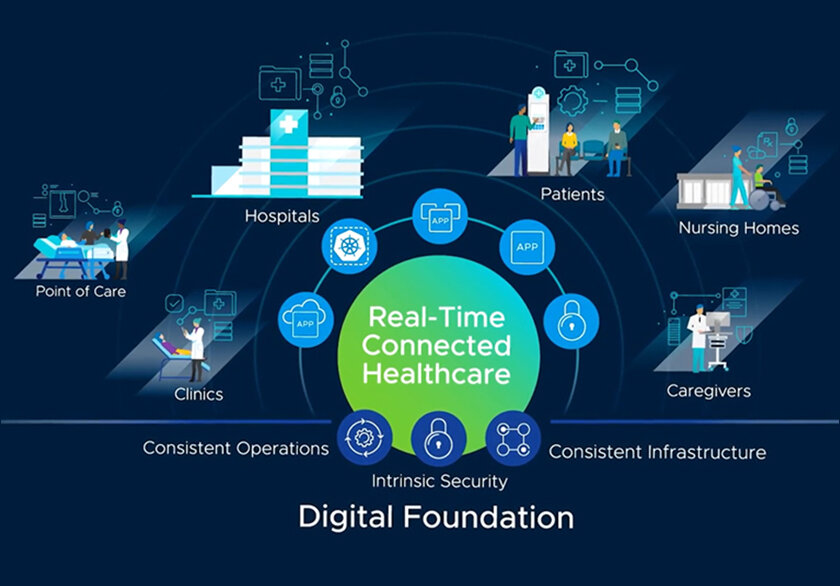
Streamlined Administrative Processes:
Conventional healthcare administration responsibilities, such patient registration, invoicing, and paperwork, can be laborious and prone to mistakes. However, administrative procedures are becoming more efficient due to the incorporation of technology.
Documentation automation and digitalization eliminate mistakes, cut down on manual labor, and provide medical professionals more time to devote to patient care. Automated patient record, insurance claim, and financial transaction management systems guarantee more efficient operations, quicker turnaround times, and increased administrative job accuracy.
Efficient Appointment Scheduling and Management:
The administration and scheduling of appointments has been completely transformed by technology, improving patient and healthcare provider convenience and efficiency. Patients may set up appointments, verify availability, and set up automatic reminders via online portals and mobile applications. This removes the need for phone calls and lowers the possibility of missing appointments.
Digital scheduling systems help healthcare providers by maximizing resource allocation, reducing wait times, and providing real-time appointment scheduling visibility. This simplified method increases operational effectiveness and improves the overall patient experience.
Enhanced Communication and Collaboration Among Medical Professionals
In healthcare operations, effective communication and teamwork are essential, particularly in multidisciplinary care settings. Medical practitioners may collaborate and communicate more easily because to technology, which improves patient outcomes and coordination.
Regardless of physical location, information sharing and real-time communication are made possible by secure messaging systems, video conferencing technologies, and shared electronic health records. More thorough, patient-centred care is produced when medical professionals interact, seek second views, and discuss while developing treatment strategies.
In conclusion, the symbiosis of medicine and machines is revolutionizing healthcare, offering unprecedented benefits in patient care, diagnostics, and operational efficiency. Emerging technologies such as AI, robotics, and telemedicine are reshaping the landscape, enhancing accuracy in diagnosis, streamlining administrative processes, and improving overall healthcare accessibility. As we stand on the brink of transformative possibilities, the next article will delve into the critical realm of ethical considerations, technological trends, and challenges in integrating these innovations. Exploring the ethical dimensions and navigating integration challenges is essential to ensure that the potential of emerging technologies is harnessed responsibly, creating a healthcare future that prioritizes both innovation and ethical standards.



